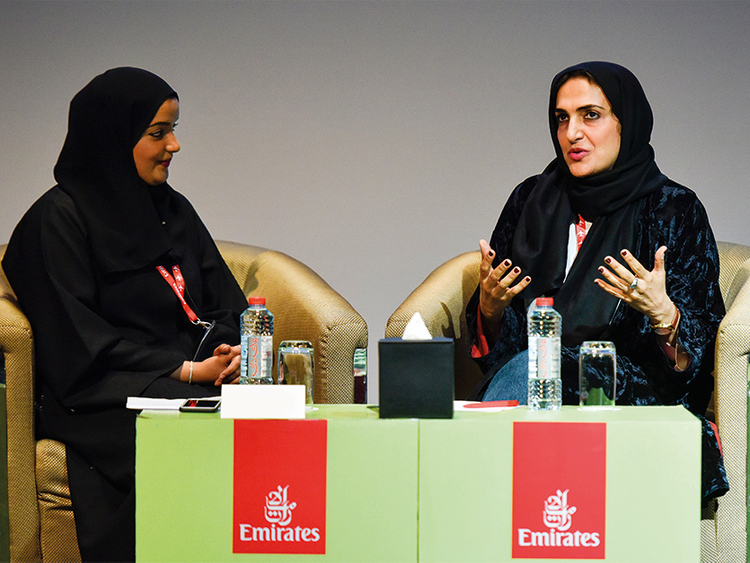Dubai: It’s no secret that well-written, well-told stories can often be a mirror for readers to see their own cultural soul as a people.
It’s important that Emiratis read stories about their own culture, people and forgotten, hidden-away places in the UAE to gain a better sense of self, said Emirati author and journalist Reem Al Kamali in a Thursday session at the ninth edition of Emirates Airline Festival of Literature.
Winner of the Al Owais Creativity Award in 2015 for her first book ‘Saltanat Hurmoz’, Al Kamali said she drew upon her experiences as a child growing up in her isolated home village of Khasab, Musandam, to weave her fictional narrative.
When she first started researching the history of her green mountain village overlooking the Strait of Hormuz, she quickly learnt “there were no stories about my area. I wanted to talk about ourselves. Emiratis want to know how do we think, how do we live?”
Al Kamali told a packed session that she is “from the current generation of a forgotten area. No parents went out from this area”.
As a youngster, her village was all that she knew and she would often peer out from atop the mountain range into the spectacle of the busy shipping lane of the Strait of Hormuz. The contrast between her isolated rural life and the steaming fleets of modern ships from international destinations filled her with wonder, she said.
“It was like a cage, a self-enclosed village. There were no roads. I used to see huge ships entering the strait passing by without giving us any attention,” Al Kamali said. “I started to ask existential questions about why we are here.”
A stone fortress in her village built by former Portuguese colonialists long ago only added to the mystique of the place, she said.
Yearning for answers as a child, it was difficult because there were no book repositories in her village.
“We didn’t have a bookstore or a library,” said Al Kamali, who works as a journalist at Al Bayan newspaper in Dubai.
When she was 10, her village-merchant father decided to move to Dubai to pursue business opportunities and she was instantly thrust into a world where books were readily available.
Al Kamali read to her heart’s content and soon “learnt the most important thing is to ask questions”.
After four years of study in Lebanon, she decided to become a writer and embarked on her first book to pen a humanitarian, fictional novel framed by historical research.
“I used a simple language to get the heart of the reader,” Al Kamali said. “The language is one of the most important tools for writers.”












